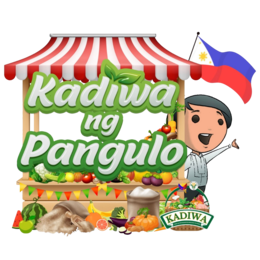
When life gives you coffee:
INCREASING SPECIALTY COFFEE PRODUCTION: QUALITY IN OUR LOCALITY
The Philippines is a coffee-producing country, considered to be one of the few countries that belong to the coffee belt and one of the few gifted to grow the four varieties of coffee. However, the country’s coffee farmers remain in need of proper education on the modern technologies for processing coffee. Their produce is thus being bought at low prices, while high-end roasters who are willing to pay high costs have to import quality coffee beans with expensive logistics.
To address this problem, Lendilou F. Loon of Bansalan, Davao del Sur started her coffee venture: increasing the production of high-quality coffee by implementing coffee quality standards in harvesting and processing, as well as by educating her neighboring farmers about the technology by example. With this, the Philippines can increase the price of coffee products and decrease the cost at her buyer’s end for having quality in the locality.
The coffee industry in the time of COVID-19
Though Loon has an existing farm, it was solely dedicated to farming—growing, harvesting, and selling her crops directly without any added value. It was only during the COVID-19 pandemic when it became an agribusiness.
During the pandemic, communities were under lockdown and most businesses were closed. Even their cooperative, which is also their local distribution channel, could not operate. As a result, their coffee harvests have been stocked with no appropriate storage and have decreased in quality and value.
It was also during the pandemic when Loon realized that her father was getting old and is no longer capable of carrying coffee sacks. She knew that it was time for her to step up, engage in the farm, and make the coffee business her career of choice.
Challenge accepted
While her college degree is not related to farming, Loon grew up a farmer. She looked at her education as something that their farm might have been in need of. She encouraged her parents to change their notions that farming is only for the poor and that one must study hard to be free from the farms and work in air-conditioned skyscrapers.
Loon aspires for her agribusiness to be capable of offering opportunities to help the community. She also hopes to encourage the youth to go back to the farms, apply their learnings from school, and fill the gap in the country’s traditional farming.
With this in mind, she founded the Sergio-Loon Coffee Farm, a coffee business that processes specialty coffee from farm to cup. It was named after her father, Sergio “Teting” Loon, who served as her mentor and inspiration. He was also one of the pioneer coffee farmers in their sitio. He was a coffee farmer since 1970 who had turned from commercial to specialty coffee with the help of the Department of Agriculture, the Department of Trade and Industry, and non-government organizations.
Reaching new heights
Loon’s farm has been producing quality coffee that is renowned throughout the province and the country. This holds true when she was recognized by the Philippine Coffee Quality Competition, winning tenth place in 2019 and second in 2021. She also received the Youth in Coffee award in 2022. The farm is also a Good Agricultural Practices (GAP)-certified farm that continually produces safe, high-quality coffee.
With the help of the Young Farmers Challenge Fund (YFCF): Kabataang Agribiz Competitive Grant, in which she represented the Davao Region, Loon started to offer roasted and powdered coffee, along with other related products. She invested her personal funds to buy raw materials like coffee cherries to process her award. In processing coffee, she always adheres to the quality standards. Her directive is to pick ripe, float, sort, dry, and monitor moisture content, since she believes that adding quality to green coffee beans is also value-adding.
For consistency, she also invested in four new all-weather dryers and in the construction of a new processing area where dried coffee cherries can be stored and sorted. Loon chooses suitable quality materials because she also looks forward to applying for a License to Operate.
As a Communication and Media Arts student, she utilizes social media to reach her target market. She sells her products on Facebook and Shopee. She also linked with the Coffee for Peace, Inc. as a third party to sell her products in Abreeza Mall, Davao City. Agreements with buyers were also secured to protect both ends.
However, Loon still experienced difficulties in securing supplies because the demand is
higher and her capital was not enough. She resolved this by negotiating with the coffee buyers for a pre-order arrangement and advanced payment scheme. Out of the advanced payment given by buyers, she offered her partners zero interest loans. It helped them sustain their farm harvests and fertilize their coffee trees. She also managed to secure a roaster out of her sales in October, with the help of one of her buyers who paid for their orders in advance.
Moving forward together
Loon’s coffee business has the potential to enter the world market and to alleviate the lives of the community it is situated in. It employs women who lost their jobs during the pandemic and lights the houses of their partner-farmers through community extension. Thus, investing in Loon’s coffee business is also investing in the community. She believes that the trust given by the buyers, the values they entail in their coffee production, and the farm’s relationship with the community give her coffee the quality that every cup deserves. It is indeed a business that is community responsible, scalable, and sustainable.
As Loon always says, “May bukas sa agrikultura, may bukas sa kape.” ###

